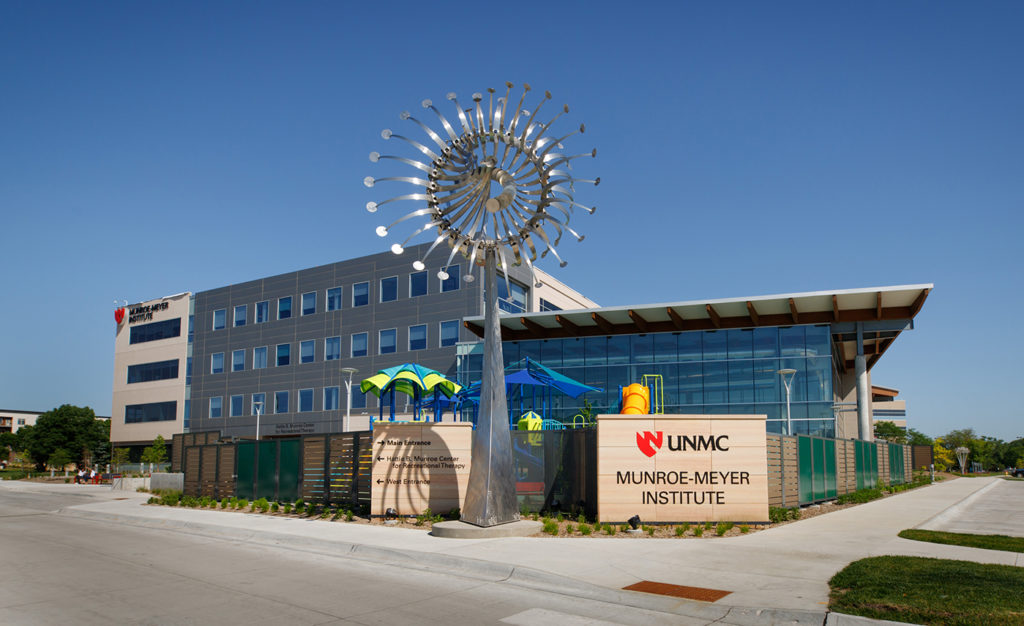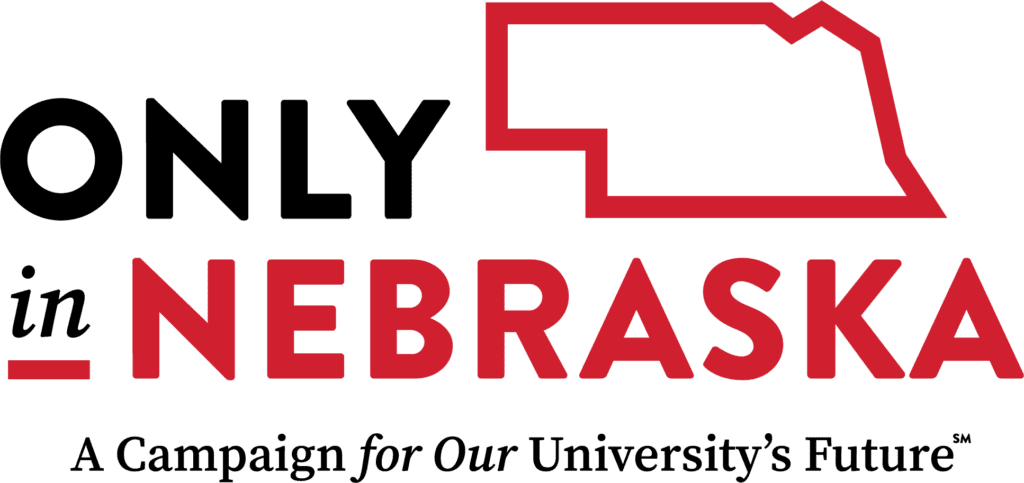‘This is a place where people’s hearts feel love’


Munroe-Meyer Institute celebrates new home and new standard of care for individuals with intellectual and developmental disabilities.
“This is a place where people’s hearts feel love,” said Timothy Shriver, chair of the Special Olympics, at the June 8 grand opening of the new Munroe-Meyer Institute building in Omaha.
The new home for the Munroe-Meyer Institute (MMI) is now the country’s most advanced and state-of-the-art facility dedicated to people with intellectual and developmental disabilities and their families.
The building “is a dream literally come true,” said MMI Director Karoly Mirnics.
“With this new building, MMI is positioned as never before to support the intellectual and developmental disability (IDD) community as it strives for awareness, acceptance and opportunity,” Mirnics said. “This building will fuel a palpable change in the IDD community and in the broader community as we work together toward those goals.”
“We created a unique building, the most advanced facility for those families impacted by IDD in the nation,” Mirnics said. “We wanted to create a new standard in IDD care for families, and we turned to these families – experts in their own right – to discover what they wanted that facility to be.”
UNMC Chancellor Jeffrey Gold called the new building a doorway into the institute’s second century.
“Since its beginning in 1919, Munroe-Meyer Institute has worked to improve the lives of the people and families it serves,” Gold said. “This new home gives it a much larger space and increased versatility and flexibility, but the core of the MMI mission — partnering with those with intellectual and developmental disabilities and their families to overcome challenges, to live fuller, richer lives — remains the same. We are forever grateful to all of the private philanthropists from our community who have invested in this world-class facility and the MMI mission.”
PHOTOS: See photos from the grand opening event
Costs for the building initiative were more than $90 million with funding provided through the state of Nebraska and private gifts to the University of Nebraska Foundation.
“Due in large part to the philanthropic generosity of those who saw the need and value, many families will benefit from the excellent care and expanded services now possible through the Munroe-Meyer Institute in its new home,” said Brian Hastings, president and CEO of the University of Nebraska Foundation. “Thank you to our benefactors for the dream they’ve made possible and to the faculty, staff and providers for delivering this life-changing care to our families.”
Major contributors to the building initiative include the following:
- Weitz Family Foundation
- William and Ruth Scott Family Foundation
- Suzanne & Walter Scott Foundation
- Hattie B. Munroe Foundation
- Clarkson Regional Health Services
- Holland Foundation
- Robert B. Daugherty Foundation
- The Lozier Foundation
Now located at 6902 Pine Street in Omaha near the University of Nebraska at Omaha Scott Campus, the new building is more than double the size of MMI’s former home. It provides critical room for growth of existing programs and the development of innovative new ones, ample parking, entrances and a floor plan designed to accommodate the needs of the individuals MMI serves.
Susan Gass said her son Kaleb takes advantage of all that MMI offers and that Omaha is fortunate to have the university and the help it provides.
“MMI partners with our families to allow us to dream big for our kids,” Gass said. “It provides opportunities for our kids to help them achieve their potential at home, at school and within our community. The staff in this facility are truly amazing. They are the reason that Kaleb wants to be here for every opportunity.”
Although MMI now has a wonderful facility, it’s what takes place inside it that really maters.
“What is most important is what the building will allow us to provide: the best, most comprehensive, most integrated family-centric care for IDD in the world. And we will be doing that … for decades to come,” Mirnics said.
Contact: Robb Crouch, senior director of public relations, 402-458-1142, [email protected]





